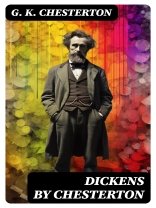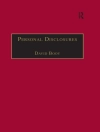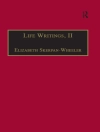In ‘Dickens by Chesterton, ‘ G. K. Chesterton offers a captivating and insightful exploration of Charles Dickens’ literary genius. This rich analysis combines a biographical approach with a critical examination of Dickens’ themes, stylistic choices, and social commentary. Chesterton’s enchanting prose, imbued with his characteristic wit and philosophical musings, resonates within the broader context of early 20th-century literature, shedding light on the moral dilemmas and societal injustices Dickens confronted in his work. Through Chesterton’s lens, readers gain a deeper appreciation for the interplay of humor, tragedy, and the human condition that permeates Dickens’ narratives. G. K. Chesterton, a prolific writer and influential thinker, is well-regarded for his contributions to literature, philosophy, and social criticism. His own experiences and deep-seated belief in the importance of morality and faith, often juxtaposed with the harsh realities of modern life, frame his interpretation of Dickens. Chesterton admired Dickens not only for his storytelling prowess but also for his profound ability to engage with social issues, making this analysis a reflection of the values that underpinned Chesterton’s own work. For readers who seek to understand the intricate layers of Dickens’ characters and the societal critiques embedded within his narratives, ‘Dickens by Chesterton’ serves as an essential companion. Chesterton’s engaging style and perceptive insights will appeal to both scholars and casual readers alike, inviting them to delve into the world of Dickens with renewed passion and understanding.
Circa l’autore
Gilbert Keith Chesterton (1874–1936) was an English writer, philosopher, and literary and art critic famed for his distinctive style characterized by humor, paradox, and a deep sense of spirituality. Chesterton’s vast body of work encompasses various genres, including journalism, poetry, plays, and detective fiction, yet his insightful criticisms and biographies remain highly regarded. ‘Dickens by Chesterton’ is one such example where Chesterton delves into the life and literary universe of Charles Dickens, casting light on the enduring charm and humanism in the Victorian novelist’s work. In this exploration, Chesterton’s critiques resonate with his own advocacy for the common man and the whimsical portrayal of ordinary life, a thematic parallel also found in his other biographical works such as ‘Saint Thomas Aquinas’ and ‘Saint Francis of Assisi’. His novel ‘The Man Who Was Thursday’ and the ‘Father Brown’ mystery series showcase his knack for weaving theology and philosophy into compelling narratives. Notable too is his essay collection ‘Orthodoxy’, where he lays out his Christian apologetics with wit and irony. A major figure in the Edwardian literary scene, Chesterton’s influence extends to writers like C.S. Lewis and Jorge Luis Borges, and his work continues to inspire and provoke thought in the fabric of English literature.












